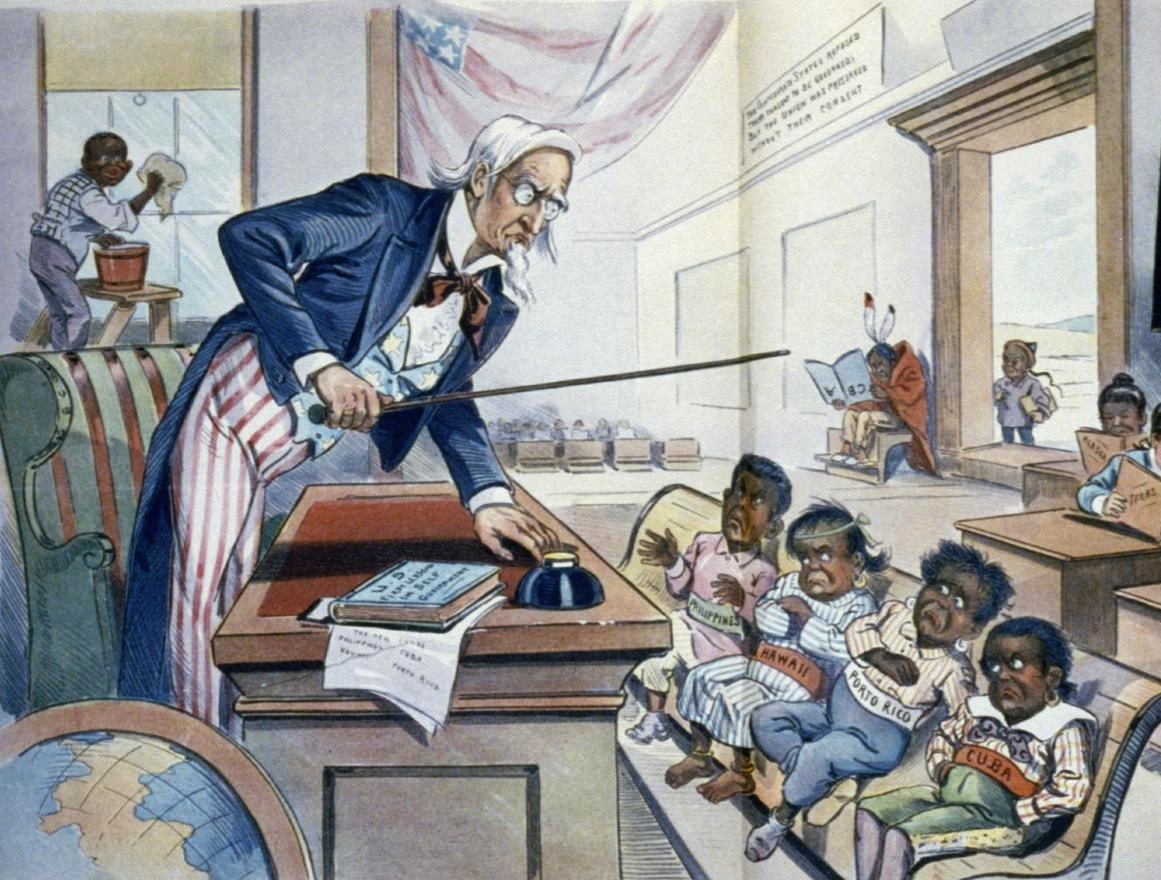The Conservative and Liberal parties were very different from their ancestors, the oligarchical eighteenth-century factions of Tories and Whigs. The Conservatives kept their old electoral following among country gentlemen, army and navy officers, and Anglican clergymen, but they added many new supporters among agricultural laborers, tradespeople, and even some of the urban working and white-collar classes.
The Liberals found many new supporters among businessmen, the nonconformists, white-collar radicals, and the more politically conscious workers. Both parties frankly appealed to the “people.” The Conservatives, with their Primrose League in memory of Disraeli’s favorite flower, their appeal to love of queen and country, their record of social legislation against the worst evils of the new factory system, did at least as good a job of building a party machine and getting out the vote as did the Liberals.
The two-party system was almost wholly confined to the English-speaking lands: Britain, the United States, and the British dominions. On the Continent, a multiparty or coalition system usually prevailed—not only in France, Italy, and Germany but also in the smaller democracies of Scandinavia, Switzerland, Holland, and Belgium, as well as in Spain, which had established a bicameral legislature in 1876.
A two-party democracy had clear advantages in promoting continuity, clarity of debate and choice, and a sense of security. In the twentieth century neither two-party systems nor parliamentary governments proved ultimately to be the norm for newly independent and modernizing states, and even in the older democracies more and more voters saw themselves as “independents,” casting their votes on issues rather than party loyalty.
But in the nineteenth century the relative clarity of position, the stability of policy, and the possibilities for direct compromise that arose from two- party government made for relatively greater domestic peace. Yet it was also in some measure less democratic than a multiparty system, since it generally offered the voter relatively limited choices.
In terms of political psychology, a two-party system means that the millions of individual voters who make up each party must be in greater agreement than disagreement over what the party stands for—or at least when they vote they must feel that their candidate stands more for what they want than for what they are opposed to. Each voter makes some kind of compromise, takes something less in practice than is ideal, or else abstains.
The reasons why the British made such compromises must be sought in history. One reason lies in the relative security of the British Isles from external foes. All the Continental states were repeatedly exposed to the dangers of war and the threat of invasion, but Britain was not seriously challenged internally or externally until the twentieth century.
Continental states in the nineteenth century were still torn by major antagonisms between the privileged nobles and the middle class. Another reason for Britain’s relative stability at this time is the fact that the struggle against absolutism had occurred a century and a half earlier. It had left England with a moderate ruling class that was itself the product of a compromise between the old landed gentry and the new commercial classes. The deep abyss the French Revolution had dug on the Continent between royalists and republicans and between clericals and anti-clericals did not exist in Britain, even though class bias was very real there.
Even more important than the individual readiness of Liberals and Conservatives to support their party’s policies was the fact that both parties had a wide area of mutual agreement above and beyond party. There was not much ideological difference between the Conservatives and the Liberals. Her Majesty’s Government and Her Majesty’s Opposition, almost equally loyal to established ways, helped to develop in the British people practices of pragmatic compromise, of respect for law, and of remarkable political stability.

